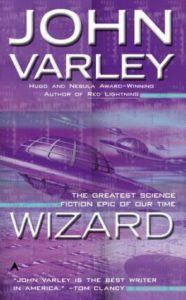I’m on a Charles Dickens mailing list. Have been for 15 years or more. A noted Dickens scholar, who performs Dickens all year, and does A Christmas Carol several dozen times a year, asked this:
After 25 seasons of touring Dickens’ solo “A Christmas Carol” there is a line which while I don’t perform it still niggles at the back of my mind. Scrooge in the “dismal wretched ruinous church yard” and pleading for a second chance says, “Good Spirit…Your nature intercedes for me, and pities me. Assure me that I yet may change these shadows you have shown me, by an altered life.” Dickens then tells us that, “The kind hand trembled.” The adjective has always puzzled me. Why “kind”? Is Dickens merely adumbrating Scrooge’s redemption – how I’ve always interpreted it – or am I missing something deeper and more sublime? Thank you all in advance. – John D. Huston
To me, this one scene is what the entire book is about.
The ghost of Christmas Yet To Come is the most hopeful of all of the
ghosts, and the most kind. It’s the only one that has a chance of
redeeming Scrooge. Or, rather, not redeeming him, but giving him the chance to redeem himself.
Past is reminding him of things he can no longer change. Not only that, but Past is kind of a jerk about it, rubbing his nose in the worst bits, and insisting that he see one more thing when he’s already had enough.
Present just tells it like it is. Present is even a bit of a silly comic figure, with a very short memory, and who can only see now. Except for his brief moment scolding Scrooge about Scrooge’s definition of “surplus population”, Present is all happy and bouncy. But not kind.
Future is the one who is *truly* there for Scrooge’s salvation, and so is the most kind of the three, even though it is the most frightening – frightening because it requires that Scrooge fundamentally change, and be the “fool” that he accuses Fred of being.
I absolutely love this scene. It almost brings me to tears every time.
He is, indeed, very kind. Kind enough to break the rules a little, and
let Scrooge in on the secret that he can change his future. I also
always remember Patrick Stewart’s rendition of this scene, where he suddenly grasps the reality that he can change the future, and fix what is broken. That moment when Patrick Stewart says “aaaaahhhhh!” is the climax of the entire movie. And it’s the only movie rendition that really gets that scene right.
I’m doing a reading next Friday evening for my friends – like I do every year. And there are some parts of the story that are hard to get through because of how much they mean to me, personally. The opportunity of a second chance is what this book is all about.

